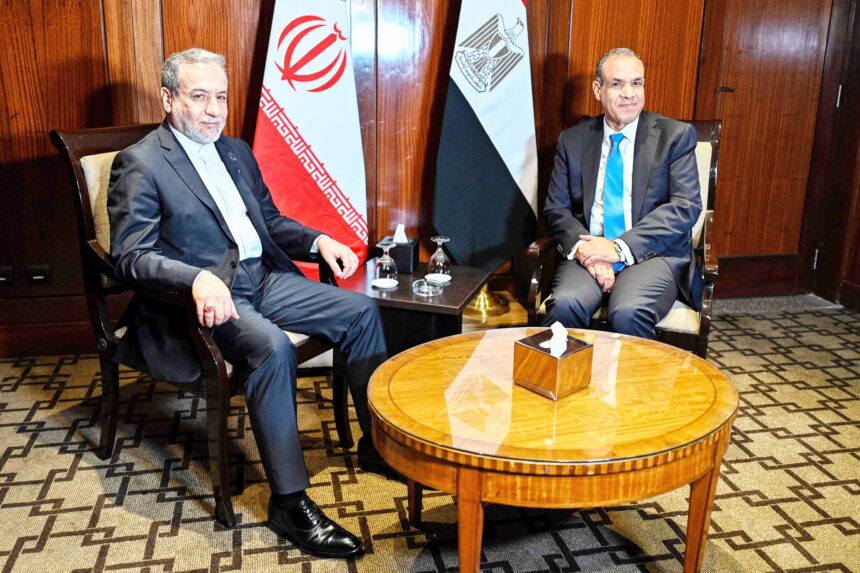CAIRO – The UN atomic watchdog’s chief yesterday called for more transparency from Iran as it seeks relief from sanctions in negotiations over its nuclear programme. International Atomic Energy Agency (IAEA) director general Rafael Grossi made the comments ahead of a meeting in Cairo with Iran’s top diplomat and chief nuclear negotiator, Abbas Araghchi.
It comes a day after a leaked IAEA report showed Iran has stepped up production of uranium enriched up to 60% – close to the roughly 90% level needed for atomic weapons.
In a joint press conference with Egyptian Foreign Minister Badr Abdelatty before the scheduled tripartite meeting, Grossi defended the report, calling it “impartial”.
“We say things as they are without a political agenda,” Grossi said, stressing the report “tells it as it is”.
“There is a need for more transparency – this is very, very clear – in Iran, and nothing will bring us to this confidence (besides) full explanations of a number of activities,” he added.
Iran has rejected the IAEA’s findings, calling it a “political” manouevre based on “unreliable and misleading information”.
Grossi said some of the report’s findings “may be uncomfortable for some, and we are… used to being criticised”. In a phone call with Grossi on Saturday, Araghchi warned Iran would retaliate if European powers that have threatened to reimpose nuclear sanctions “exploit” the report.
Abdelatty urged a peaceful solution, saying “the region is already experiencing enough crises and security challenges”.
“We completely reject any escalation or incitement of a military option,” he said, warning against “descending into a state of chaos from which no one will be spared”. The UN report comes as Iran holds talks with the United States on its nuclear programme, after Washington unilaterally abandoned a landmark agreement between Tehran and world powers in 2018 during President Donald Trump’s first term.
Iran, yesterday demanded a US guarantee that sanctions will be lifted as part of a nuclear deal.
The 2015 deal aimed to stop Iran from developing a nuclear bomb – a goal Western countries accused it of pursuing, though Tehran denies it.
The Iranian foreign minister said Saturday he had received “elements” of a US proposal for a potential nuclear deal following five rounds of Omani-mediated talks.
The UN agency’s board of governors is set to review Iran’s nuclear activities in its upcoming quarterly meeting in Vienna starting June 9. – Nampa/AFP


